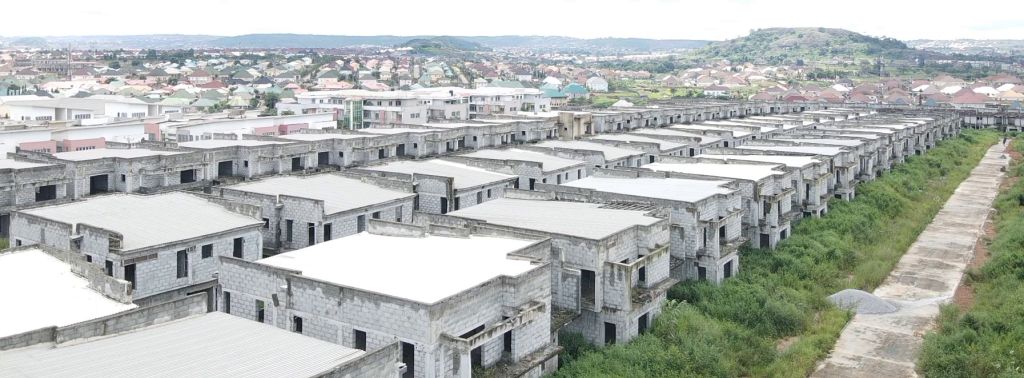


Forfeiture of 753 duplexes: A mirror to Nigeria’s governance crisis
The recent forfeiture of 753 duplexes by the Economic and Financial Crimes Commission (EFCC) has triggered a wave of public interest and concern, not just because of the large number of properties involved, but due to the lack of transparency surrounding their ownership and the broader implications of the seizure.
This action, while a legal victory, exposes the profound dysfunction at the heart of Nigeria’s governance and the rampant corruption that continues to plague the country.
The scale of the seizure is staggering. Seven hundred and fifty-three duplexes — an entire real estate empire that could house thousands of citizens — were seized from unnamed individuals. This is not just a story of properties; it is a stark reminder of how public wealth has been looted and diverted into private hands.
These duplexes stand as symbols of systemic theft, as they are likely the result of illicit enrichment by those in positions of power, using public office for personal gain. But the issue goes beyond the properties themselves. The lack of transparency in the entire process raises significant questions about the integrity of the investigation and the EFCC’s commitment to exposing corruption.
While the commission is quick to seize assets, it has been reluctant to name names. By hiding behind legal jargon and technicalities — such as invoking Section 17 of the Advance Fee Fraud Act and the complex legal doctrine of “action-in-rem” — the EFCC creates a cloud of ambiguity around its actions. This lack of clarity breeds public distrust and undermines the credibility of the entire process.
The reluctance to disclose the names of those behind the properties is not just a matter of legal procedure; it is a matter of institutional failure. In a democracy, transparency is essential to maintaining public trust. When government agencies, like the EFCC, operate behind closed doors, they inadvertently become complicit in the system of obfuscation that enables corruption to thrive.
The public deserves to know the full story, including who is responsible for these illicitly acquired assets and how they were obtained. Moreover, this forfeiture is not an isolated incident. The real estate sector in Nigeria has long been a fertile ground for financial crimes, where wealth can be easily laundered and illicit dealings can remain hidden.
These 753 duplexes are likely just the tip of the iceberg, a small fraction of the larger web of corruption that continues to operate under the radar. Each of these properties represents not just stolen wealth, but missed opportunities for development — funds that could have been spent on schools, hospitals, infrastructure, and other vital public services.
The impact of such actions goes beyond the individual offenders; it affects the entire nation. Each time a large-scale seizure of assets occurs without full disclosure, it normalises a culture of secrecy. It sends the message that corruption can thrive without consequence, and that public office is a means to personal enrichment. This undermines the fundamental principles of democratic governance and erodes the moral fabric of society.
It is time for Nigeria to take a stand against this cycle of theft and performative recovery. What is needed is not just legal proceedings, but a cultural revolution that redefines public service as a genuine commitment to national progress. We must move beyond mere asset recovery and focus on building a system where integrity, transparency, and accountability are the cornerstones of governance.
The EFCC is at a crossroads. It can continue down its current path of strategic ambiguity, or it can seize this moment to become a true catalyst for change. True accountability is not about legal maneuvering or technicalities; it is about creating a clear and unambiguous narrative that serves the public’s right to know and ensures justice is done.
The commission must open up the process, name those responsible for these illicit assets, and make a full disclosure of how they acquired such wealth. This is not just a matter of recovering stolen properties; it is a matter of rebuilding the trust between the state and its citizens. Transparency is not a luxury; it is the fundamental currency of democratic governance.
The world is watching as Nigeria grapples with its corruption problem, and this moment represents an opportunity for the country to demonstrate real leadership in the fight against financial crimes. The forfeiture of these 753 duplexes serves as a powerful symbol of Nigeria’s governance crisis. They are not just buildings; they are evidence of a systemic failure.
The time to act is now. Nigerians must demand accountability from their leaders and institutions. Only through true transparency and a commitment to justice can the country break free from the stranglehold of corruption and build a brighter future for all.



